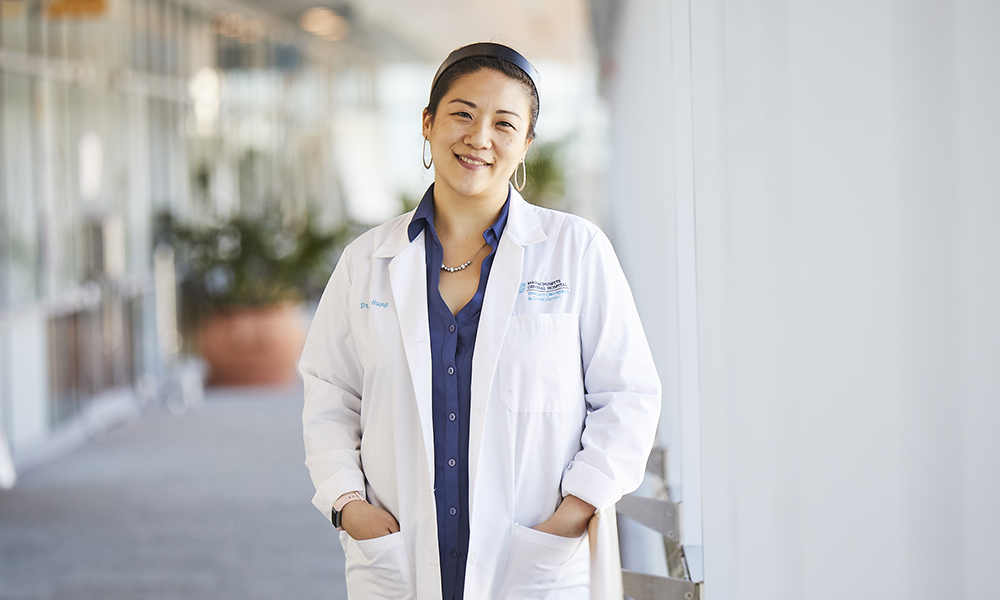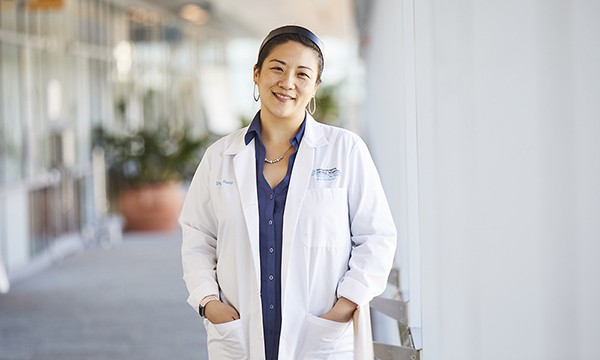What to Ask About Pelvic Floor Disorders
If you have a pelvic floor disorder, don’t suffer in silence. Tell your doctor about your symptoms and ask which treatments might be right for you. These questions will help you start the conversation.
Weather AlertWe are monitoring the weather's impact on our services. If you are experiencing a medical emergency, call 911 or go to the nearest emergency department. Mass General Brigham's emergency departments remain open. For real-time updates and service changes, please check our Alerts page.View Alerts page
Contact Information
Yawkey Center for Outpatient Care, Suite 4E
55 Fruit Street
Boston,
MA
02114
Phone: 857-238-8496
Mass General Brigham Healthcare Center (Waltham)
52 Second Avenue
Suite 570
Waltham, MA 02451
Phone: 857-238-8496
Mass General Brigham Healthcare Center (Danvers)
102-104 Endicott Street
Danvers, MA 01923
Phone: 857-238-8496
The Female Pelvic Medicine and Reconstructive Surgery program, like the subspecialty nationally, will change its name to Urogynecology and Reconstructive Pelvic Surgery to describe the subspecialty and improve patient care by adopting a name that is more recognizable to the public, patients, and referring health care providers more accurately.
Patients with urinary incontinence or problems related to changes in the pelvic organs often suffer in silence. Many patients are uncomfortable talking about their symptoms or assume these problems can’t be corrected. Too often, rather than seeking medical help, they endure countless inconveniences along with a decline in quality of life.
Our staff in the Urogynecology and Reconstructive Pelvic Surgery Program (URPS) includes obstetricians, gynecologists, clinical fellows, and nurse practitioners who understand a patient’s changing needs throughout their lifetime. We work as a tightly knit team, sharing our expertise to offer you individualized care for your particular symptoms.
You can count on our team to provide compassionate care for group of conditions called pelvic floor disorders that may be difficult to discuss, including:
We take pride in developing individualized urogynecologic treatment plans for each patient, incorporating the most advanced surgical and nonsurgical options available.
Our treatment philosophy, and the preference of most patients, is to avoid surgery whenever possible. Many symptoms can be address using nonsurgical approaches such as:
For patients who do require surgery, we are committed to developing and introducing minimally invasive procedures that involve less pain and a shorter recovery time. Examples include:
Patients can access our services in several convenient locations: on the hospital's main campus in Boston, Danvers, and Waltham
Prior to your visit we will ask you to fill out a comprehensive questionnaire to help us understand your symptoms better. This questionnaire can be filled out on paper or online.
During your first visit, you and your doctor will talk about the symptoms you are experiencing. Your doctor will also conduct a comprehensive physical examination. As a next step, you may need to schedule urodynamic testing of your bladder and urethra function.
At your follow-up appointment, you and your doctor will discuss an individualized treatment plan that targets your particular condition. We often recommend patients begin with nonsurgical approaches, such as targeted physical therapy, which can be quite effective for treating mild prolapse, incontinence and other pelvic floor disorders.
If nonsurgical approaches are ineffective — or inappropriate for your condition — only then do we proceed with surgery. Our physicians are highly skilled in performing the full spectrum of surgical procedures, including minimally invasive laparoscopic and robotic-assisted surgeries.
The Center for Pelvic Floor Disorders provides individualized care from a multidisciplinary team.
Our staff includes fellowship-trained physicians who also specialize in urogynecologic surgery. In addition to our physicians, we have experienced urogynecologic nurses and a nurse practitioner who provide support.
Lauren Beauregard, WHNP-BC
The Department of Obstetrics and Gynecology at Mass General has advanced the science and the quality of care for patients since 1891.
Our program emphasizes the development of clinician-scientists who develop and implement basic science and clinical research in urogynecology.
Over 1/4 of the babies born each year at Mass General are delivered by midwives, who manage prenatal care, labor and delivery and postpartum care.
We provide state-of-the-art, individualized care for women and their families before, during and after childbirth.
If you have a pelvic floor disorder, don’t suffer in silence. Tell your doctor about your symptoms and ask which treatments might be right for you. These questions will help you start the conversation.
One in three women struggles with a pelvic floor disorder, but many do not seek treatment. Learn more about these disorders.
Learn more about bacterial vaginosis (BV) from Caroline Mitchell, MD, director of the Vulvovaginal Disorders Program at Massachusetts General Hospital.
We take pride in developing individualized urogynecologic treatment plans for each patient, incorporating the most advanced surgical and nonsurgical options available.

